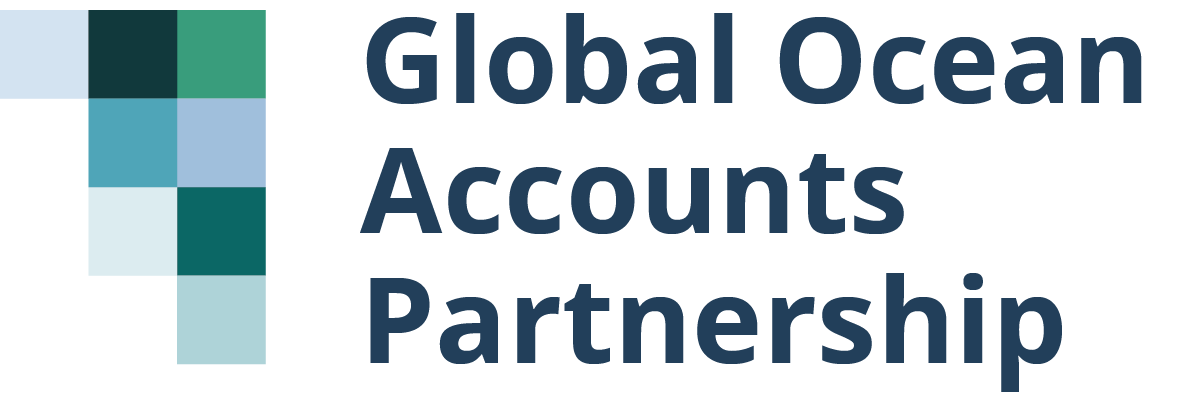Ocean Accounts for Sustainable Ocean Plans: Enabling Decision-Makers to Measure Progress

Introduction
The ocean economy is a complex and multifaceted system involving numerous and diverse users whose activities often conflict. Governing and managing this system to ensure sustainability while preserving the resilience of marine ecosystems is a significant challenge. To address this, the High Level Panel for a Sustainable Ocean Economy (Ocean Panel) advocates for Sustainable Ocean Plans (SOPs) that holistically manage all ocean areas under national jurisdiction. Ocean Accounts provide a robust data foundation that can be integrated with SOPs so decisions can be made based on data and evidence. Integrating ocean accounts enables policymakers to measure progress and adapt strategies effectively.
What is a Sustainable Ocean Plan?
A Sustainable Ocean Plan (SOP) is a comprehensive framework designed to guide the sustainable management of all national ocean areas. SOPs integrate economic, environmental, and social considerations to ensure balanced and sustainable use of ocean resources while protecting marine ecosystems. These plans support the Ocean Panel's commitment to sustainably manage 100% of ocean areas under national jurisdiction, providing economic, social, and environmental benefits across various sectors and communities.
What are Ocean Accounts?
Ocean accounts are integrated records of regularly compiled and comparable data concerning ocean environmental conditions, economic activities, social conditions, and governance contexts. They provide a structured and standardised data foundation essential for policy and plan formulation. Ocean accounts support creating clear indicators to monitor the effectiveness and progress of ocean management strategies, enabling policymakers to adjust based on evidence and changing conditions.
Why are Ocean Accounts Relevant to SOPs and the Commitment to 100% Sustainable Management?
Ocean-related policy often falls short due to isolated and incomplete information, hampering effective management. Ocean accounts address these challenges by compiling and standardising fragmented data to produce reliable indicators essential for informed decision-making. These accounts enhance data accessibility and usability, equipping policymakers to assess impacts, plan mitigation strategies, and ensure sustainable ocean governance.
Utilising Ocean Accounts to Develop and Implement Sustainable Ocean Plans
Ocean accounts support various stages of SOP development, from knowledge gathering and stakeholder engagement to monitoring and evaluation. They provide valuable information, reduce reliance on ad hoc data, and identify knowledge gaps. Key components of SOPs supported by ocean accounts include:
- Social and cultural considerations: Ocean accounts capture data on people's dependency on the ocean for livelihoods, income, and well-being, supporting inclusive and representative decision-making.
- Economic development strategies: Ocean accounts provide tools to go beyond GDP in measuring and managing progress, integrating environmental, social, and economic data to support policies prioritising ecosystem protection and restoration.
- Area-based plans: Ocean accounts enhance strategies like Marine Spatial Planning (MSP) and Marine Protected Areas (MPAs) by organising relevant information and providing a comprehensive overview of interlinkages, informing more nuanced and effective governance decisions.
- Environmental protection approaches: Ocean accounts provide comprehensive data to address pollution, mitigate impacts of land-based activities, and conserve and restore marine ecosystems.
- Enabling policies: Ocean accounts enhance policy effectiveness by providing structured data, facilitating policy integration, and supporting cost-benefit analyses. They ensure policies are adaptive and based on comprehensive data and analysis.
- Enabling finance: Ocean accounts inform sustainable finance by including the value of marine and coastal ecosystems, enabling governments and the private sector to adopt integrated financial management approaches that balance economic growth and environmental sustainability.
Integrating ocean accounts with Sustainable Ocean Plans is crucial to achieve holistic ocean governance. This integration enhances policy coherence, optimises resource allocation, and fosters inclusive stakeholder engagement. By leveraging comprehensive data, nations can safeguard marine resources, promote sustainable economic development, and ensure the resilience of marine ecosystems for future generations.
Authors: Elizabeth Hollaway, Eliza Northrop, Maria Granada Alarcon Blazquez, Jessica Bridgland, Arlette Schramm, Rebecca Shellock, Jordan Gacutan, and Tainã Gonçalves Loureiro
